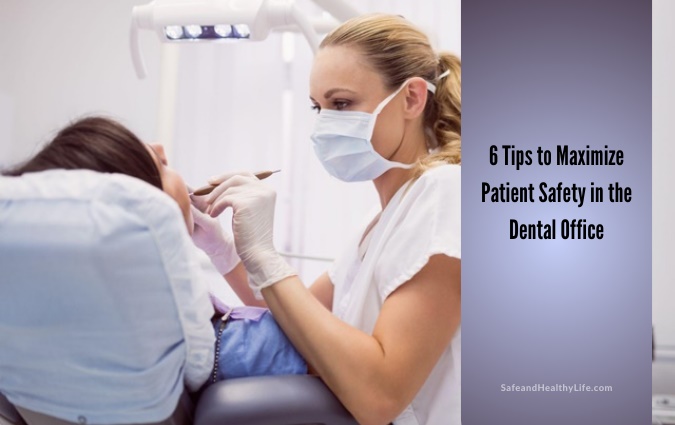
Patient safety should be at the core of all healthcare services, and dentistry is no exception. In fact, dental care involves serious risks when there are no protective measures in place.
Also, providing a safe environment is a sure way for dentists to help their patients relax and have a positive experience during their appointments.
As a dental professional, you should look into the following tips that will help you maximise patient safety in your office:
1. Invest in Appropriate Tools
The occurrence of back pain and repetitive strain are some of the most frequent workplace complaints among dental professionals, and all such issues can be prevented if you use high-quality dental equipment.
Dentists regularly have long work hours, and they spend a lot of their time leaning over patients, sitting in chairs, and typing detailed patient information.
All those activities leave a mark on your health, and a doctor who is continuously hurting is much more likely to make mistakes that can cause injuries and other types of damage.
That is why you need to maintain all the equipment and machinery to a safe and high standard.
2. Always Sterilize Your Equipment
All dental offices must have proper cleaning procedures in place, and that involves complete sanitation of equipment, treatment rooms, waiting areas, and toilet facilities.
That way, you will reduce the health and safety risks of both patients and workers. While the work area needs to be cleaned and sanitized at regular intervals, all dental instruments must be thoroughly sterilized before and after each use.
By doing so, you will minimize the risk of infection and the spread of disease.
Finally, your patients will judge the quality of your services based on the level of cleanliness they encounter in the office.
3. Focus on Hand Hygiene
On average, you are in contact with 300 surfaces every 30 minutes, which exposes you to 840,000 germs. Given the nature of working in a dental office, keeping your hands impeccably clean should be one of your top priorities.
Even though the process of washing hands seems pretty straightforward, make sure you never skip taking care of areas like the space between your fingers and under the nails.
Always wash your hands with soap and scrub them meticulously for at least 20 seconds. Once you’re done, make sure you’re either using a clean towel or an air dryer.
4. Wear Protective Gear
Regular use of personal protective equipment is one of the best ways for healthcare professionals to improve overall safety during procedures. Such equipment includes gloves, masks, aprons, and protective eyewear.
The majority of items are made for single-use only and should be thrown away after each patient intervention.
Seeing you in proper protective equipment will help your patients rest assured that they will be protected from viruses and infections whenever they trust you with their dental problems.
5. Be Ready for Emergencies
Emergencies may not happen too frequently in dental offices, but once they do, it can be a pretty painful experience for the patient if the team is not well prepared.
The only way to avoid this scenario is to have all team members ready to provide the required treatment at all times. Also, they need to know their specific roles as soon as they’re informed about a specific dental emergency.
During the emergency itself, dental professionals need to stay close to the patients and accompany them in case they need to be transferred to a different facility.
6. Communicate with Your Team
Taking care of patient safety is not a one-person job so it requires your whole team to make an effort. All team members need to do their part in order to support the measures in place, in order to make it all work, they need regular updates on potential changes.
Consider meeting with your team regularly, preferably at the beginning or the end of each week so you can keep them updated on the changes in government regulations, internal announcements, upcoming special events, new equipment deliveries, and all other relevant information.
Patient safety is the first step towards high-quality dental care, and as a healthcare professional, you need to make sure to meet all the standards related to supreme care.
When patients see that you consider their safety your primary concern, they will instantly feel calmer and more relaxed.
About The Author:
Stacey Smith is a freelance health writer. She is passionate to write about women’s health, dental health, diabetes, endocrinology, and nutrition and provides in-depth features on the latest in health news for medical clinics and health magazines.




